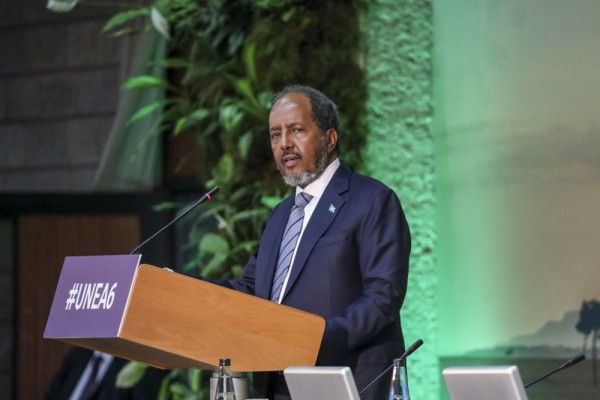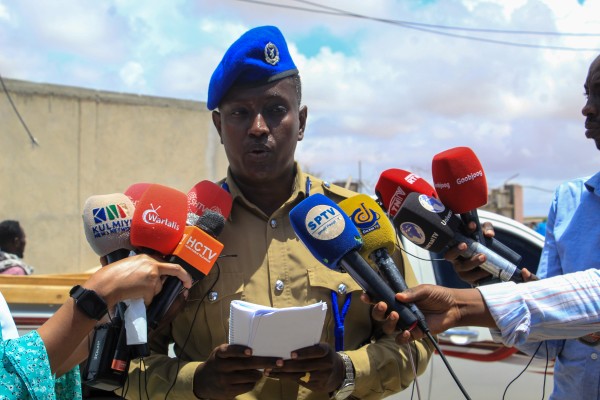A Somali radio journalist is recovering after being shot in the chest by two unknown assailants on Sunday evening, the latest in a series of armed attacks against journalists and media workers in the troubled East African state.
Mohyadin Hasan Mohamed, head of news for the Shabelle Media Network, told the National Somali Union of Journalists (NUSOJ) he was lucky to be alive after a bullet struck just above his heart.
According to news reports, Mohamed was returning home in the Mogadishu neighbourhood of Madina when he was approached by two male youths. When one of the youths brandished a pistol, Mohamed attempted to flee; witnesses say six shots were fired altogether, with one hitting the journalist.
Mohammed Ibrahim, NUSOJ Secretary General, strongly condemned the incident, which he called an attempted assassination. “We call for [an] immediate and urgent investigation into the shooting incident, and [to] bring the assailants to a court of Justice,” he said in a media statement.
The International Press Institute (IPI) is greatly alarmed at the growing threat to journalist safety in Somalia, where three journalists – including the director of the Shabelle network – have been murdered since the end of January, all in circumstances eerily similar to yesterday’s attack. Only in Syria have more journalists been killed this year, according to IPI’s Death Watch.
Naomi Hunt, IPI Press Freedom Adviser for Africa and the Middle East, said, “We are immensely relieved to hear that Mr. Mohamed survived what appears to have been a targeted attempt on his life, and we wish him a speedy recovery. Unfortunately, this incident reinforces what we already know: the media in Somalia is under siege.”
She added: “The appalling level of impunity in cases of crimes committed against journalists in Somalia is facilitating the continued violence and has to be addressed immediately. Journalists are being hunted down on the streets of Mogadishu – and no one is being held accountable.”
Noting the rhetoric from a highly visible conference in London last month on Somalia’s future (at which British Prime Minister David Cameron announced that there was “real momentum for change” in the conflict-ridden state), Hunt emphasised that journalist safety was key to the country’s future stability.
“If the international community truly wishes to follow up on its promise of restoring peace to Somalia, it must wake up to the terrible violence being inflicted on the country’s journalists,” she said.
The string of attacks against the media has not been limited to Mogadishu. Earlier this month, IPI reported on the killing of a radio journalist in Puntland, a semi-autonomous region in north-central Somalia. IPI has also voiced repeated concern over a wave of arrests and intimidations in Somaliland, a self-declared state in Somalia’s northwest that had been praised as a model of stability and democratic governance in the Horn of Africa.


